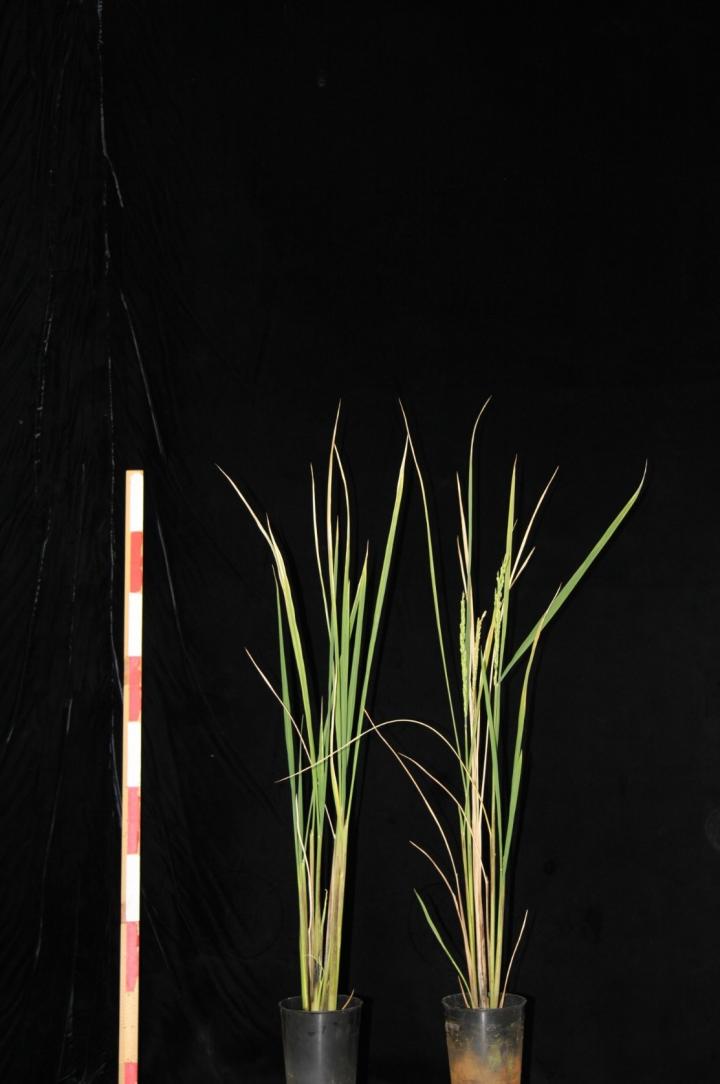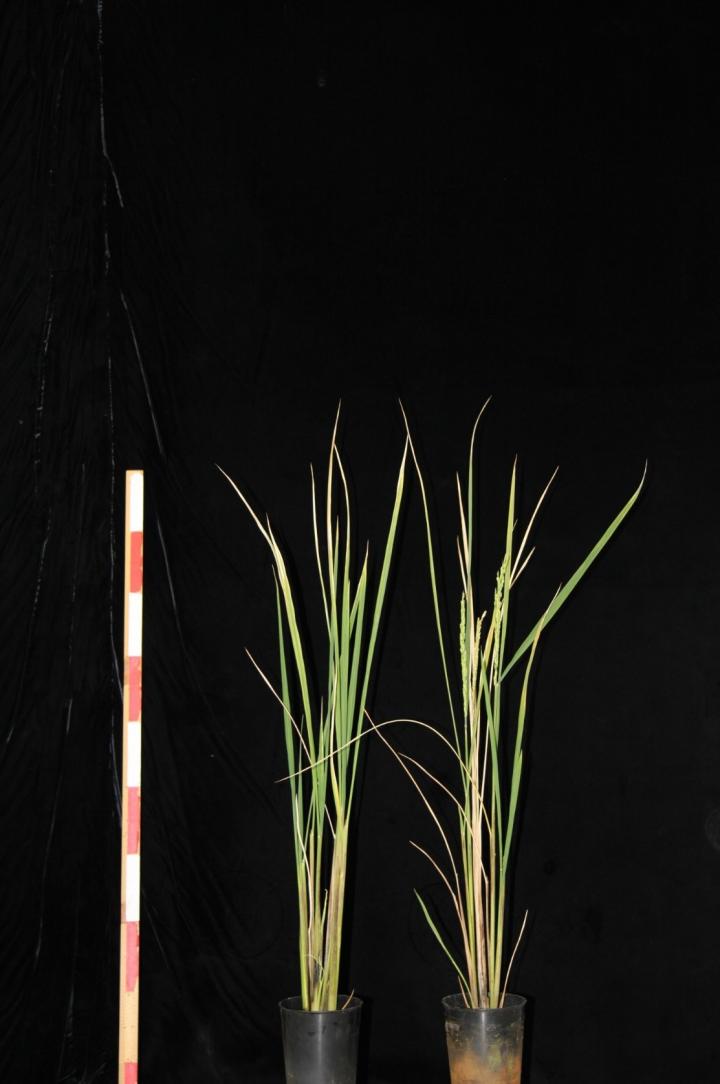
Credit: 2017 Takeshi Izawa.
A new strain of rice that flowers within a certain period of time after being sprayed with commercial chemicals commonly used to protect rice from fungal diseases is now available, say Japanese scientists. This new strain could one day allow rice farmers to dictate the timing of their harvest regardless of weather, temperature and other conditions that currently affect cultivation.
Temperature, day length and other environmental cues determine when plants flower, making it difficult for farmers to control when to harvest their crops. While scientists have been able to artificially manipulate the flowering of small flowering plants like Arabidopsis thaliana, they had so far not been successful in such influence over cereal crops.
A group of Japanese scientists led by Professor Takeshi Izawa at the University of Tokyo's Graduate School of Agricultural and Life Sciences developed a new rice strain that flowers 40 to 45 days after being administered a common agrochemical, commercially known as Routine or Oryzemate, that prevents rice from being infected by a damaging disease called rice blast.
The scientists first created a non-flowering strain by overexpressing a gene (Grain number, plant height and heading date 7, Ghd7) that suppresses flowering genes (florigen genes) which induce flowering at the tip of plants under short-day conditions. Then Izawa and his colleagues modified the florigen gene Heading date 3a (Hd3a) in the non-flowering rice strain so that it would be activated in response to certain agrochemicals. When they tested the rice strain in laboratory conditions and in pots under natural field conditions in Tsukuba, a city 70 km north of Tokyo, in Ibaraki Prefecture, the researchers observed that the new strain flowered in about 45 days after administering the chemicals. In the experiment spanning over two years, they repeatedly observed flowering only after spraying.
Izawa, who has been working on molecular mechanisms behind plant flowering for more than 20 years, thought that there would be a handful of promoters–genetic regions that switch on the gene–that will make the Hd3a respond to certain agrochemicals. "We identified 12 candidate promoters using a technique called 'field transcriptome analysis' that reveals which genes are activated in response to Routine or Oryzemate under natural cultivation conditions. We tested the efficacy of all the promoters and found that only one could be used to fulfill our purposes, instead of several as we had hoped."
Izawa continues, "I'd like to understand the science behind our new strain, because we've only been successful in manipulating the flowering of plants that are hemizygous, that is, plants that have only one copy of a gene instead of two."
The next challenge for the researchers is to see if the new strain flowers in rice paddies and various other field conditions, so that farmers will one day be able to decide when to harvest their rice grains.
###
Journal article: Ryo Okada, Yasue Nemoto, Naokuni Endo-Higashi and Takeshi Izawa, Synthetic control of flowering in rice independent of the cultivation environment, Nature Plants Vol. 3 27th Mar 2017
URL: https://dx.doi.org/10.1038/nplants.2017.39
DOI: 10.1038/nplants.2017.39
Collaborating institution: Functional Plant Research Unit, National Institute of Agrobiological Sciences
Links: Graduate School of Agricultural and Life Sciences, The University of Tokyo
Department of Agricultural and Environmental Biology, Graduate School of Agricultural and Life Sciences, The University of Tokyo
Functional Plant Research Unit, National Institute of Agrobiological Sciences
Research contact:
Professor Takeshi Izawa
Laboratory of Plant Breeding & Genetics, Department of Agricultural and Environmental Biology, Graduate School of Agricultural and Life Sciences, The University of Tokyo,
1-1-1 Yayoi, Bunkyo-ku, Tokyo 113-8657, Japan
Tel: +81-3-5841-5063
Fax: +81-3-5841-5063
Email: [email protected]
Press officer contact:
Naoko Kato
Public Relations and Information Team
Graduate School of Agricultural and Life Sciences, The University of Tokyo,
Address 1-1-1 Yayoi, Bunkyo-ku, Tokyo 113-8657, Japan
Tel: +81-3-5841-5484
Fax: +81-3-5841-5028
Email:[email protected]
Funding: This work was supported by grants from MAFF, Japan (Genomics for Agricultural Innovation, GPN-1001; Genomics-based Technology for Agricultural Improvement,GMO-1005; PFT-1001) to Takeshi Izawa
About the University of Tokyo: The University of Tokyo is Japan's leading university and one of the world's top research universities. The vast research output of some 6,000 researchers is published in the world's top journals across the arts and sciences. Our vibrant student body of around 15,000 undergraduate and 15,000 graduate students includes over 2,000 international students. Find out more at http://www.u-tokyo.ac.jp/en/ or follow us on Twitter at @UTokyo_News_en.
Media Contact
Naoko Kato
[email protected]
81-358-415-484
@UTokyo_News_en
http://www.u-tokyo.ac.jp
############
Story Source: Materials provided by Scienmag





